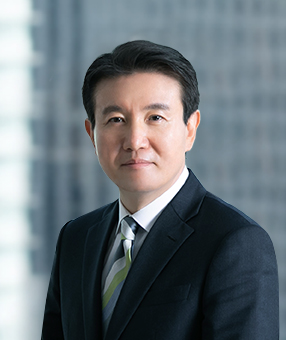A major Amendment to the Korean Patent Act to broaden the scope of method patents to cover online transmission of software passed the National Assembly on November 19, 2019 and was publicly announced on December 10, 2019. The Amendment adds the act of "offering a process for use" to the acts that are considered to practice a method patent. Further, if the act of offering such process for use is made with knowledge that the process infringes the method patent, the patentee may enforce the patent against such acts, including acts of online transmission of a program from abroad. The amended Patent Act will go into effect 3 months after the announcement on March 11, 2020.
Under the existing Patent Act, software inventions are patentable subject matter only if the claims of the software invention are directed to certain statutory categories of invention, which are limited to a "method," "apparatus," "computer-readable medium (having computer program or data recorded thereon)," and "computer program stored on a storage medium." Further, the claims must recite involvement of concrete hardware means and interaction with software.
With the advent of the Internet and mobile devices, most software products are no longer recorded on computer media and sold to consumers. Rather, software is typically made available for users to download over the Internet onto their computers, mobile devices, and the like. Traditional statutory invention categories have been seen as inadequate to protect modern software inventions, particularly where the software distributor is in a foreign country beyond the reach of Korean courts. However, court cases have been divided as to whether online transmission of a program constitutes practicing a patented method under the existing Patent Act.
The amended Patent Act adds provisions that extend the meaning of "practicing" a patented invention to expressly cover the act of offering a process for use (amendments underlined):
Article 2, Paragraph (iii). "Practice" means the following acts
(a) (omitted)
(b) In the case of a process invention: an act of using the process or an act of offering the process for use
Article 94 (Effect of Patent Right)
(1) (omitted)
(2) If practicing a patented invention is an act of offering a process for use according to Article 2(iii)(b), the patent right shall affect only the act of offering the process for use with knowledge that the use of the process infringes the patent right or an exclusive license.
The amendments in Article 2, Paragraph (iii) and Article 94 Paragraph (2) thus clarify that a process invention can be infringed both by using the process and by "offering the process for use." Article 94 Paragraph (2), however, adds a subjective "knowledge" requirement to acts of offering a process for use in order to find infringement of the patent right or an exclusive license. In other words, the patent would only be enforceable against such acts if the actor knows that the use of the process would violate a patent or exclusive license.
The new provisions resemble the Patent Law in the United Kingdom, where the U.K. Patent Court has held that "an offer of computer program may be an offer of a process for use" (Research In Motion UK Ltd. v Inpro Licensing SARL [2006] EWHC 70 (Pat) (02 February 2006)). Consistent with the UK Court of Justice decision above, the legislative purpose of the Amendment is clearly to allow enforcement of patent rights against an online transmission of a program in Korea. But it remains to be seen whether courts will interpret "an act of offering a process for use" to cover acts beyond the original intent of allowing enforcement of patent rights against online transmission of a program, such as to an offer to sell a device on which the patent method invention may be carried out.
In general, the amendments are expected to heighten the value of method claims in patent applications. Further, since subjective knowledge of infringement is required to enforce the patent right against acts of offering a process for use, patentees are more likely to send cease-and-desist letters to potential infringers for evidentiary purposes.
Furthermore, under these amendments, offering downloads to end users might be construed to infringe a process claim of a software patent if the program, once downloaded and installed by the end user, runs the steps of the process claim, if the person offering the download is aware the steps will be run. Therefore, this change may affect distributors of software programs (including online platforms for distributing software programs/apps) in that Korean software patent holders may be more incentivized to assert software patents with process claims against such distributors (in addition to software developers).
Related Topics







